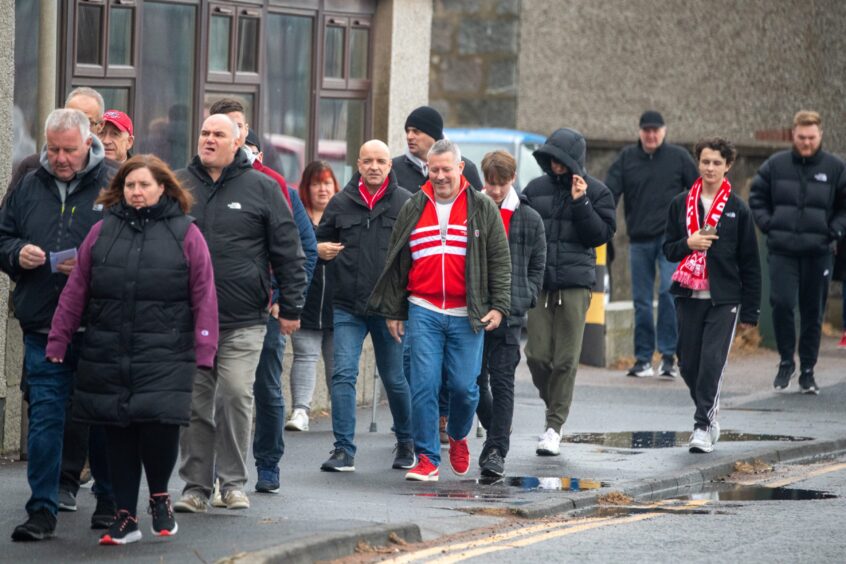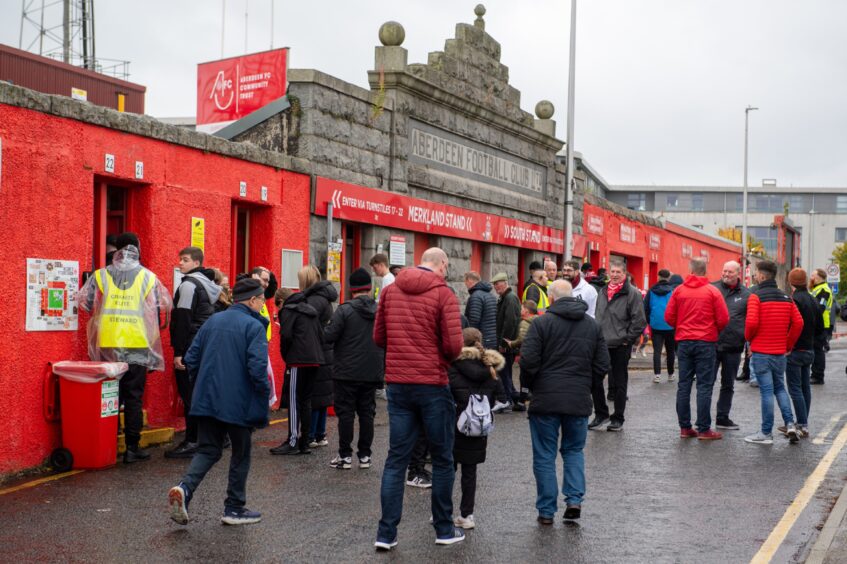It’s a question that seems to come around every year – why is drinking booze at Scottish football grounds still banned?
Pints have not been permitted for fans in the stands since trouble at the 1980 Scottish Cup final.
The prospect of lifting the ban made headlines again recently after health secretary Neil Gray said he’d give “serious consideration” to any proposals.
However, he later clarified that his government was not currently considering allowing booze to be sold again generally at games, and First Minister John Swinney said the Scottish Government “doesn’t have any plans to do this”.
Many believe it is unfair for football fans to still be dealing with the consequences of an incident that happened more than 40 years ago. However, others believe the ban is still vital for public safety in 2024.
We spoke to Gavin Baxter, host of the ABZ Football podcast, and Peter Rice, who is an officer for the campaign organisation Scottish Health Action on Alcohol Problems (SHAAP), to hear their thoughts on the perennial debate.
‘Anyone who goes to football knows that it doesn’t stop drinking’
We caught up with Gavin Baxter, the host of the ‘ABZ Football’ podcast.
With thousands of fans coming to Pittodrie for matches, he believes Aberdeen Football Club would benefit, alongside the city, if the ban was dropped.
Gavin called the booze restrictions “collective punishment because of a group of Rangers and Celtic fans in the 1980s”.
“That still being the case in 2024 is, quite frankly, absurd,” he added.
“I don’t believe the alcohol ban stops the problems it’s intended to because anyone who goes to football knows that it doesn’t stop people smuggling usually high-level spirits into the game.”
No other sports in Scotland have an alcohol ban at games, and Gavin questions why football has maintained its blanket ban.
Gavin believes in ‘high-risk’ games still having an alcohol ban, but doesn’t think there is a need for all games.
“I wouldn’t advocate for alcohol to be sold when Rangers are at Pittodrie for example, but I don’t think there’s any enhanced risk of trouble when Aberdeen play Ross County,” he said.
Gavin also believes there is a potential to improve matchday experience by allowing alcohol to be sold at the grounds.
“In Aberdeen alone we have such great breweries and local vendors.”
“Rather than the money going to the supermarkets or the off-licenses, it would go locally.”
‘Football fans were treated like criminals, things have changed’
Fans in hospitality can currently drink alcohol, however fans elsewhere at football grounds cannot.
Gavin expressed his frustrations at this and believes there is classist undertones to this notion.
“You’re allowed to drink at Scottish football in hospitality, an element of that is classist.”
“Let’s just give people the chance to enjoy the game.
“This all comes from 1980s; football fans were treated like criminals to the very word, things have changed now.
“The benefits far outweigh the cons.”
‘There are limits there for a good reason’
Peter works as an officer at the campaign organisation Scottish Health Action on Alcohol Problems (SHAAP), where they focus on reduction of alcohol-related harm across society.
SHAAP receives grant funding from the Scottish Government.
Peter expressed his concerns over getting rid of the alcohol ban, calling it a “serious risk” to consider any form of loosening on the current legislation .
“The problem is that alcohol causes harm, it changes atmospheres, it changes people’s experiences,” he said.
“There is an appropriate time and place for that to happen, but in football stadiums and stands is not one of them.”
SNP MSP George Adam has argued that “things have moved on in football” since the ’80s, and has suggested loosening booze restrictions could be a way to help football clubs generate cash.
But Peter believes that the alcohol ban is part of the reason that it has “moved on”.
Moreover, he said “there are limits there for a good reason”, and argues alcohol problems in Scotland are currently higher than they were in the ’80s.
“I think one of the reasons that football has moved on is because the regulation of alcohol.
“The risk is that you would undo some of that progress.
“The notion that Scotland’s alcohol consumption has improved in these 40 years is not the case, it’s got considerably worse.”
Regulating alcohol in football stadiums is a ‘sticking plaster that won’t stick’
It has been claimed that getting rid of the ban would allow more control over drinking both before and after football games.
Peter doesn’t agree with this.
“The notion is that everyone will have a pint,” said Peter.
“That’s not how alcohol consumption works across populations.
“It’s 10% of the people drinking 50% of the alcohol.
“Those who don’t drink to excess are having others’ drinking imposed on them.”
Peter also wasn’t convinced by the argument that it would financially benefit smaller clubs.
“I think the people behind the scenes would need to tell us more about how the economics would work.”







Conversation